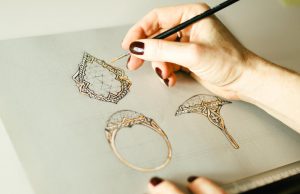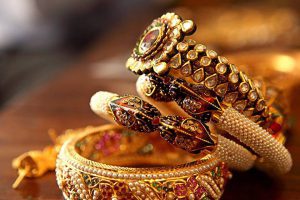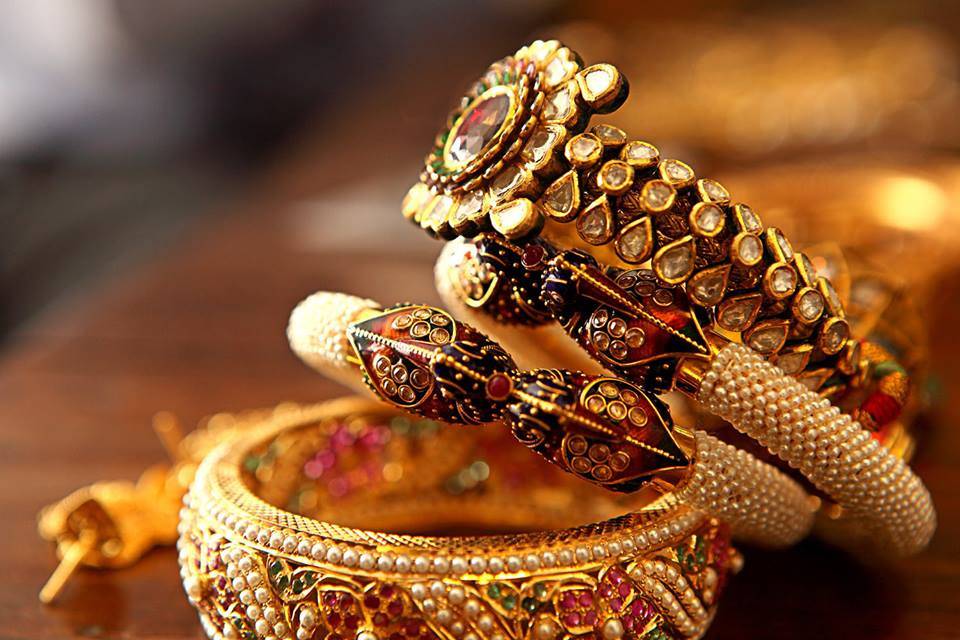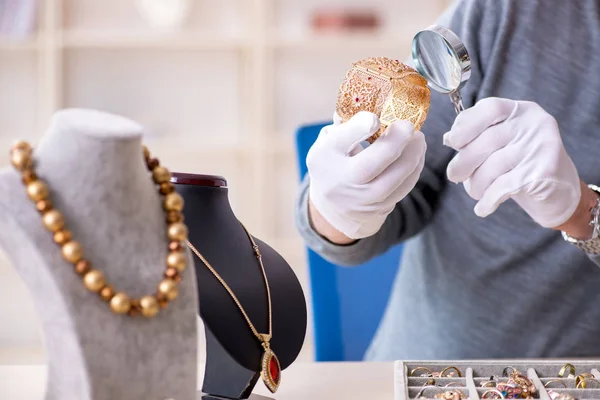Understanding how to become a jeweller involves starting with a jewellery design course or apprenticeship to develop essential skills and techniques. Next, build a strong portfolio to showcase your work and consider learning CAD for precise designs. As you gain experience, you can specialize in areas like gemology or custom design, potentially leading to starting your own business.
What Are the Main Types of Jewellers?
Jewellers are craftsmen who design, make, repair, and sell jewellery. They work with precious metals, gemstones, pearls, and other materials to create various items, from simple necklaces to intricate diamond rings. The jewellery industry can be divided into several groups based on specialisations.
Jewellers can be categorised into three main groups: designer jewellers, diamond cutters and setters, and watchmakers. There are various types of Jewellers based on the industry and business structure of a company. Here are some examples:
- Designer Jewellers: They are experts in creating one-of-a-kind pieces. They use a range of materials to craft truly unique jewellery. To do this, they must possess several skills, such as the ability to carve, cast wax, set stones, engrave designs, polish jewellery, and understand the characteristics of different materials.
- Diamond Cutters and Setters: They focus on cutting and setting diamonds. Depending on the client’s request, they select and clean the diamonds and cut them into various shapes and sizes. Once the diamonds are prepared, they are mounted onto gold or silver bands.
- Watchmakers: They design and manufacture watches. They use various materials, such as precious metals, pearls, gems, and other components, to create elegant and durable wristwatches.
- Bench Jeweller: A bench jeweller is responsible for crafting, repairing, and resizing jewellery. They work with tools to shape metals, set stones, and polish jewellery. Bench jewellers often work in jewellery stores or repair shops.
- Jewellery Designer: Jewellery designers focus on creating new designs for rings, necklaces, bracelets, and other jewellery pieces. They may sketch designs by hand or use computer-aided design (CAD) software to create detailed plans for production.
- Gemologist: Gemologists specialize in studying and evaluating gemstones. They assess the quality, authenticity, and value of precious stones like diamonds, rubies, emeralds, and sapphires. Gemologists often work in appraisal, purchasing, or selling gemstones.
- Jewellery Maker: Jewellery makers are artisans who create handmade jewellery, often using traditional techniques. These jewellers may work independently, selling their pieces in galleries, online shops, or directly to clients.
- Retail Jeweller: Retail jewellers work in jewellery stores, selling jewellery to customers and often assisting with custom orders. They may also be involved in appraisals, customer service, and marketing.
- Jewellery Engravers: Jewellery engravers specialize in personalizing jewellery pieces with intricate engravings. They use hand tools or laser technology to engrave names, dates, or decorative designs onto metal surfaces.
- Casting Jeweller: Casting jewellers use moulds to create jewellery pieces from metals like gold, silver, or platinum. This process involves melting metals, pouring them into moulds, and finishing the jewellery through polishing and setting stones.
What Does a Jeweller Do?

A jeweller works with a variety of materials and employs different skills for various purposes. They may create intricate designs, mend broken or worn valuable pieces of jewellery, or appraise precious and semi-precious gemstones.
Jewellers design and create a range of jewellery pieces, including watches, necklaces, rings, earrings, and bracelets. They also repair damaged items and carefully examine existing jewellery to identify any issues. Additionally, jewellers evaluate gemstones, grading them based on their beauty and colour, influenced by the physical, chemical, and optical properties of the stones.
In conclusion, we will discuss the main duties of a jeweller and how jewellers utilise their skills to work with precious materials and perform diverse duties.
- Design Jewellery: Jewellers, particularly those specialising in design, create bespoke pieces unique to the client. They may sketch by hand or use CAD software to produce intricate design models.
- Cut, Shape, and Assemble Jewellery: This involves using the necessary tools to cut and shape jewellery items, followed by professional assembly. This includes soldering metals, setting gemstones, and finishing the piece to a high standard.
- Repair and Restore Jewellery: Jewellers frequently undertake repair work, such as resizing rings, replacing clasps, resetting stones, or mending damaged jewellery. They may also restore vintage or heirloom pieces extensively.
- Assess and Value Jewellery: When appraising jewellery, especially as gemologists, jewellers consider the value of items based on the quality of materials, craftsmanship, and market trends. They may also verify the authenticity of gemstones and metals for insurance or resale purposes.
- Engrave and Personalise Jewellery: Jewellers who engrave messages, names, or designs onto jewellery are known as engravers. They personalise rings, necklaces, and bracelets with sentimental or decorative touches.
- Consult with Customers: Jewellers often collaborate with clients to create custom jewellery pieces or assist with repairs. They provide professional advice regarding materials, design, and maintenance.
- Source Materials: Jewellers need to acquire high-quality materials such as precious metals, gemstones, and other elements for their creations. This involves working with suppliers or selecting stones and metals that fit the design and budget of the project.
- Stay Updated on Trends: Jewellers must keep abreast of trends in fashion and jewellery, as well as consumer demand, to remain relevant and meet the needs of their target customers. It is advisable for jewellers to visit trade fairs and exhibitions to stay informed about market trends and ensure their jewellery lines are up to date.
Average Jeweller Salary
The salaries of jewellers in the UK can vary depending on their experience, location, and whether they work as independent jewellers or as part of a jewellery store. Salaries can also fluctuate based on the jeweller’s area of specialisation and the demand for their work.
Below is information describing typical jeweller salaries:
- Working for a Jewellery Store: £32,800
- Working for Themselves: £29,000
- Area of Specialisation: £11,000
- Starting Salary in the Jewellery Trade: Entry-level jewellers can expect to earn between £18,000 and £25,000 per year. This includes apprentices or junior jewellers who are gaining experience.
- Experienced Jeweller: After several years of experience, jewellers can earn between £25,000 and £40,000 per year, increasing to £80,000 or more if working in custom design or with high-end clients.
- Senior Jeweller or Designer: £40,000 to £70,000+ Senior jewellers or designers with years of experience, particularly those working for luxury brands or running their own businesses, can earn between £40,000 and £70,000 or more.
Essential Skills of a Jeweller

The jewellery industry requires technical craftsmanship, creativity, and detail-oriented work. While crafting new pieces and repairing old ones, jewellers must strike the right balance between precision and creativity. Skills required for a career as a jeweller include:
- Hand-Eye Coordination: Jewellers must have excellent hand-eye coordination and fine motor skills, especially when working with small materials. For example, setting a gemstone or engraving intricate designs on a ring requires steady hands.
- Creativity and Design: Design-oriented jewellers must be creative, and able to envision unique and aesthetically attractive designs that meet customers’ preferences.
- Degree of Precision: Jewellers must pay close attention to detail when making, repairing, or appending pieces. They cannot afford to make mistakes with valuable materials and must strive to create pieces of the highest possible quality.
- Knowledge of Metals and Gemstones: Jewellers should have a comprehensive understanding of various metals, including gold, silver, and platinum, as well as gemstones such as diamonds, rubies, and sapphires. They need to know how these materials behave to create, mend, and assess jewellery.
- Customer Service Skills: Jewellers who interact with customers need strong interpersonal skills to consult with clients, provide advice, and offer excellent service. Custom orders, repairs, and appraisals often require effective communication.
- CAD Software Proficiency: Jewellery designers now use computer-aided design (CAD) software to create two-dimensional models of designs and three-dimensional models of the final pieces. These models can be used in mass production, saving time and reducing costs. Jewellers who specialise in custom design or mass production must have CAD skills.
- Problem-Solving Skills: Jewellers need excellent problem-solving skills to repair jewellery, complete custom orders, and address clients’ jewellery issues.
- Jeweller Tips: Here are some valuable suggestions for those aspiring to become jewellers and establish a name for themselves:
- Gain Hands-On Experience: Work as an apprentice in a jewellery business or at a jewellery store. Learn from experienced jewellers.
- Build a Strong Portfolio: Your portfolio is your main calling card—your source of authority. Include a range of work to demonstrate your ability to create, pay attention to detail, and explore different design forms.
- Learn CAD Design: If you want to be a jewellery designer, one of the first things you should do is learn CAD (computer-aided design) software. This will ensure your designs are precise and intricate, keeping you ahead in the industry.
- Network with Other Jewellers: Attend jewellery trade shows, exhibitions, and craft fairs to meet fellow jewellers. Networking can help you find job opportunities, collaborate with other artisans, and stay informed about the latest trends in jewellery design.
- Stay Current and Cutting Edge: Jewellery styles evolve over time, so it’s important to keep up with popular materials and techniques. Take courses, attend workshops, and participate in industry events.
Jeweller Requirements
Being a jeweller requires a combination of education, training, and experience. Many jewellers learn their trade through apprenticeships, jewellery design courses, or by working with more experienced jewellers. The following is a list of common requirements for aspiring jewellers:
- Jewellery Design Course or Apprenticeship: Many jewellers start their careers by completing a course in Jewellery Design, Metalsmithing, or Gemology. Others may pursue an apprenticeship where they learn the trade by working under a master jeweller.
- On-Site Experience: Practical experience is essential for learning the skills and developing confidence in jewellery making, repair, and design. Gaining a placement in a jewellery store, repair shop, or workshop as part of an apprenticeship or in a junior position is a good way to start.
- Portfolio of Jewellery: You’ll need a strong portfolio showcasing your jewellery designs or repair work to apply for jobs or start your own business. It should highlight your technical skills, creativity, and attention to detail.
How to Become a Jeweller

Step-by-Step Guide to Becoming a Jeweller in the UK
- Gain Basic Education and Skills: Learn the essential jewellery-making vocabulary through a jewellery design course, an apprenticeship, or a workshop. You will gain skills in basic handwork, tools and techniques, and understand how metals and stones are used in jewellery.
- Build a Portfolio: As you gain experience, create a portfolio of your work. Include examples of jewellery you’ve designed, made, or repaired, showcasing your skills and creativity.
- Learn CAD Design (Optional): If you’re interested in jewellery design, consider learning CAD software. This skill will allow you to create intricate designs that can be mass-produced or customized for individual clients.
- Gain Practical Experience: Begin by becoming an apprentice to an experienced jeweller, and learn how to make jewellery hands-on. In addition to mastering the technical aspects of jewellery making, you’ll learn about the tools involved and how the business operates.
- Learn a Speciality: Once you have gained experience, you might specialise in a specific branch of jewellery, such as gemology, engraving, or design. Specialising can set you apart from the competition and enable you to charge more for your services.
- Get Certified (Optional): While not always required, certifications such as Gemology from the Gemological Institute of America (GIA) and the Gemological Association of Great Britain (Gem-A) can give you an edge and are particularly valuable if you work with higher-value gemstones.
- Consider Going into Business for Yourself: While many jewellers work for jewellery stores, another option is to establish your own business, especially if you are interested in custom designs or creating hand-crafted items. Consider developing a business plan and opening an online store or a physical storefront.
- Build Your Brand: Whether you work for a jewellery store or are a maker in your own right, it’s important to market yourself and your work. Use platforms like Instagram, Pinterest, or Etsy to share your creations, attract customers, and network with others in the profession.
- Move Forward and Progress: Jewellery making is a lifelong process. As you gain experience, continue learning new techniques and experimenting with materials. Attend workshops, exhibitions, and shows to stay ahead of the latest trends in the jewellery industry.
Get Qualified as a Jeweller
AutoCAD Certification Program, Technical Drawing Masterclass, AutoCAD Essentials Online Course, Certificate in Drawing Skills
Frequently Asked Questions
Why Should You Become a Jeweller?
Jewellery is a rewarding profession that combines creativity with craftsmanship. You can create beautiful pieces designed to last a lifetime and hold significant meaning for your clients. Another benefit of working in jewellery is that it can be a fulfilling and profitable career for those who enjoy working with their hands, possess a detail-oriented mindset, and have a flair for artistic design. Additionally, jewellery offers numerous opportunities to specialise, such as becoming an expert in custom design, gemology, or engraving.
Is Being a Jeweller a Good Career Choice for You?
If you have an eye for detail, enjoy working with fine materials, and appreciate the possibilities for creative expression, a career in jewellery could be perfect for you. This profession can be practised in a large department store, a small independent shop, or even from home if you freelance or run your own business. Being a jeweller requires patience, precision, and a passion for craftsmanship.
Jeweller Salaries
Jeweller salaries in the UK range from £18,000 to £70,000+, depending on your experience, specialisations, and whether you work for a small independent jeweller or a larger brand. Entry-level jewellers typically earn between £18,000 and £25,000, while more experienced jewellers or those working with high-end clients can earn between £40,000 and £70,000+.
Which Qualifications Can Help with a Career as a Jeweller?
Pursuing formal education in jewellery design, metalsmithing, or gemology at an accredited institution and certifications in gemology or jewellery making can enhance your skills and pave the way towards your dream career.
Do I Need Experience to Get Started as a Jeweller?
Yes, to some extent, hands-on experience is essential to becoming a jeweller. It is common for most jewellers to start by gaining experience through an apprenticeship, working for a jewellery store, or assisting an experienced jeweller. This practical experience helps develop the necessary skills and build a portfolio of work.
Jeweller Career Outlook
The demand for bespoke and high-end jewellery remains strong. Many jewellers have taken advantage of the evolving market by diversifying into sustainable jewellery, 3D-printed jewellery, and other contemporary design developments. As the demand for jewellery continues to grow, jewellers who stay attuned to technological advancements and consumer trends will find ample opportunities for business growth. A career as a jeweller can take various forms, whether in a retail environment, a bespoke design studio, a workshop repairing antique jewellery, or in another capacity.
Jeweller Hierarchy and Progressing Within the Role
You could start as a Junior Jeweller or Bench Jeweller and then advance to roles such as Jewellery Designer, Gemologist, or Master Jeweller. Some jewellers specialise in particular fields, such as custom jewellery design or gemology, eventually moving up to more senior positions or even opening their own shops or workshops.
Jeweller Exit Options and Opportunities
With experience, you can become a jewellery appraiser, jewellery consultant, or retail manager. Others may choose to venture into business for themselves by opening a jewellery shop and specialising in custom designs or handmade pieces. A jeweller might also decide to work in a related industry, such as watchmaking, gemology, or metalsmithing.


